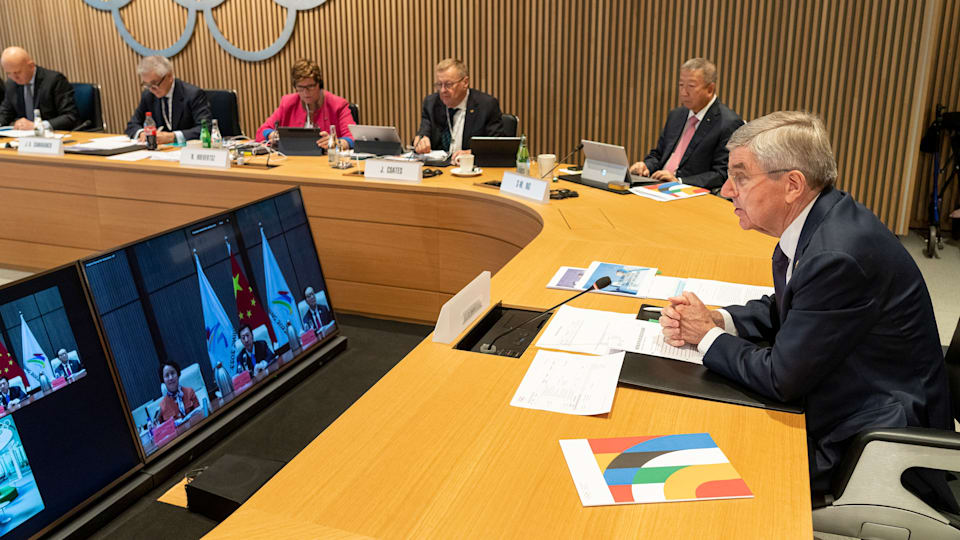Olympic Winter Games Beijing 2022 final Coordination Commission report published
The final report of the International Olympic Committee (IOC)’s Beijing 2022 Coordination Commission was published today, detailing the achievements and learnings from delivering safe and successful Olympic Winter Games earlier this year.

The report contains analysis of how the Olympic Winter Games Beijing 2022 provided the platform for outstanding sporting performances, made a lasting impact on the local community and engaged more people than any other previous Olympic Winter Games.
It explains that these were the most digitally engaged Olympic Winter Games in history, with 3.2 billion engagements with Olympic social media handles. The report also highlights the record 2.01 billion viewers on Media Rights-Holders’ linear and digital platforms, who experienced more hours of broadcast coverage than any previous Olympic Winter Games, including record coverage through digital platforms.
This data was complemented by independent consumer research, conducted following Beijing 2022, which confirmed that the Olympic Games are the world’s most appealing sports and entertainment event, while the Olympic rings remain one of the most widely recognised symbols globally.
Beijing 2022 was also the most gender-balanced Olympic Winter Games to date, with women accounting for 45 per cent of the athletes and men 55 per cent. Furthermore, these Games featured the highest-ever number of women’s events (46), and 53 per cent of events featured female athletes.
Operationally, the report outlines the success of the COVID-19 countermeasures, which minimised the positivity rate to only 0.01 per cent – the result of operating a comprehensive closed-loop management system.
Legacy and sustainability are other key pillars of the report. The Organising Committee’s ambitious vision and achievements were highlighted, acknowledging that China has been transformed into a winter sports country. This is evidenced by the fact that more than 350 million people engaged in winter sport in the lead-up to the Games, ensuring a tangible sporting legacy. Aiding this is new sports infrastructure, including ski resorts and ice rinks established across the country.
The report also looks at how the Games were used as a platform for social engagement, education, innovation and the development of sport-related business – from snow- and ice-making technologies to sports equipment. Social and economic development was another notable highlight in the report, particularly evident in the host regions of Zhangjiakou and Yanqing. From a sustainability perspective, all venues were powered by renewable energy for the first time at the Olympic Games.
In addition to these successes, Beijing 2022 also provided an opportunity to further the IOC's ongoing aim of optimising Games delivery and experience. In this context, the report contains seven recommendations for the IOC's approach across all aspects of the Games. They are based on data analysis, alongside debriefs with the Organising Committee, Olympic Movement stakeholders, the Coordination Commission and upcoming Organising Committees.
The seven recommendations relate to:
- The legacy case for new single-use venues
- Use of existing local services
- High-performing delivery partnerships
- Remote collaboration and operations
- Worldwide Olympic Partner/Organising Committee engagement
- The showcasing of sport and athlete performance
- The positive impact of the Games in host communities
An explanation of these recommendations, and the full report, can be accessed here.